

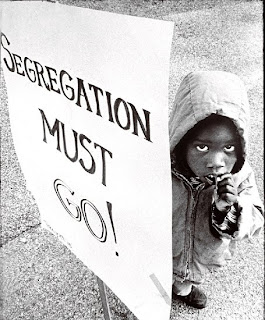 The Struggle:
The Struggle: African Americans have struggled to live and over time to be accepted by American. Their first struggles date back as far as the 1400’s wherein European explorers ventured to across lands to  purchase African humans as if they were cattle; this began the trans-Atlantic slave trade (PBS, 2009). During this time and for years to come the color of your skin would now determine the value of your life in the New World.
purchase African humans as if they were cattle; this began the trans-Atlantic slave trade (PBS, 2009). During this time and for years to come the color of your skin would now determine the value of your life in the New World.
In 1619 and onward, the need for slavers bolstered and the importation of Africans grew. Once they arrived in American, Africans were forced to work on plantations under the ownership of a white male they called  Master. In 1663, a Virginia court decided a child born to a mother who was a slave would automatically be a slave. Throughout the 1700’s nearly half of all Africans would entire the New World through the ports of Charleston, South Carolina. Merchants would kidnap Africans from their country and force them to walk an upward of 1,000 mile to the European coastal where they would wait to board a ship to the New World trade (PBS Online, 2009). By the 18th century, 45,000 Africans were imported to America as slaves annually compare to the 5000 Africans in 1680.
Master. In 1663, a Virginia court decided a child born to a mother who was a slave would automatically be a slave. Throughout the 1700’s nearly half of all Africans would entire the New World through the ports of Charleston, South Carolina. Merchants would kidnap Africans from their country and force them to walk an upward of 1,000 mile to the European coastal where they would wait to board a ship to the New World trade (PBS Online, 2009). By the 18th century, 45,000 Africans were imported to America as slaves annually compare to the 5000 Africans in 1680.
In 1863, President Abraham Lincoln issued the Emancipation Proclamation which was a failed attempt to abolish slavery. It stated “all persons held as slaves w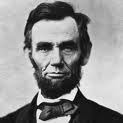 ithin any State, or designated part of a State, the people whereof shall then be in rebellion against the United States, shall be then, thenceforward, and forever free.” Being that states were not acting upon the Emancipation Proclamation he took actions further. On January 31, 1865 the 13th Amendment was passed by congress and signed into law on February 1, 1865 by President Abraham Lincoln. The 13th Amendment abolished slavery in American wherein it states "neither slavery nor involuntary servitude, except as a punishment for crime whereof the party shall have been duly convicted, shall exist within the United States, or any place subject to their jurisdiction." This was ratified by all state by December 6, 1865 (Web Guides, 2009). Even though slavery was abolished, troubles for African American were far from over. Their fight to be accepted among the American population was just starting.
ithin any State, or designated part of a State, the people whereof shall then be in rebellion against the United States, shall be then, thenceforward, and forever free.” Being that states were not acting upon the Emancipation Proclamation he took actions further. On January 31, 1865 the 13th Amendment was passed by congress and signed into law on February 1, 1865 by President Abraham Lincoln. The 13th Amendment abolished slavery in American wherein it states "neither slavery nor involuntary servitude, except as a punishment for crime whereof the party shall have been duly convicted, shall exist within the United States, or any place subject to their jurisdiction." This was ratified by all state by December 6, 1865 (Web Guides, 2009). Even though slavery was abolished, troubles for African American were far from over. Their fight to be accepted among the American population was just starting.
For many years which followed African-Americans fought for their civil rights in American.
People such as Martin Luther King Jr., Malcome X, Rosa Parks, The Little Rock Nine and many more contributed to this fight for freedom. From the 1880s into the 1960s Jim Crow Laws were enforced. These laws spoke a “separate but equal” language and preached by the much of the White population in America (Davis, 2009). Blacks were forced to use separate bathrooms, drinking fountains, schools, buses, restaurants, and much more.
This was a time where constant battles for civil right and self-respect for African Americans occurred daily. In 1896, African Americans turn to the Courts for help in defying the separate but equal way of living (Davis, 2009). However, in the historical Plessy v. Ferguson case the Courts decided living separate but equal was not in violation of the Constitution.
African-Americans continued to struggle to find acceptance among White Americans. African-Americans fought for their right to vote, God given rights and the rights to the Constitution of  the United States of American. Martin Luther King Jr. fought for freedom and abilities for African-Americans to vote. In his April 16, 1963 Letters from Birmingham Jail he states “…when your first name becomes “nigger,” your middle name becomes “boy” (however old you are) and your last name becomes “John,” and your wife and mother are never given the respect titles Mrs., … - then you will understand way we find it difficult to wait” (Rico, 2001). He expressed the horrible experience each African American shared and his desire for him and all African American to become accepted.
the United States of American. Martin Luther King Jr. fought for freedom and abilities for African-Americans to vote. In his April 16, 1963 Letters from Birmingham Jail he states “…when your first name becomes “nigger,” your middle name becomes “boy” (however old you are) and your last name becomes “John,” and your wife and mother are never given the respect titles Mrs., … - then you will understand way we find it difficult to wait” (Rico, 2001). He expressed the horrible experience each African American shared and his desire for him and all African American to become accepted.
On February 3, 1870 the fifteenth Amendment was ratified denying "right of citizens of the United States to vote shall not be denied or abridged by the United States or by any state on account of race, color, or previous condition of servitude." However, it was not until the Voting Rights Act of 1965 where African-Americans were first allowed to register to vote.
Today in America:
In 1972, The Equal Employment Opportunity Act was passed, prohibiting job discrimination on the basis of, among other things, race, and laying the groundwork for affirmative action. There are many well known African American faces which have help define modern America. For years our society has been affected and influenced by many famous African American figures. These faces include talents of Michael Jackson, Mike Tyson, Tiger Woods, Halle Berry, Sidney Poiter, Muhammad Ali, Oprah Winfrey and many more. In November 2008, Barack Obama was elected the 44th President of the United State of American in which he was the first ever elected African American to become President.
 During President Barack Obama’s acceptance speech he stated “if there is anyone out there who doubts that America is a place where anything is possible, who still wonders if the dream of our founders is alive in our time, who still questions the power of our democracy, tonight is your answer.” Obama went on to declare “Young and old, rich and poor, Democrat and Republican, black, white, Hispanic, Asian, Native American, gay, straight, disabled and not disabled, Americans have sent a message to the world that we have never been just a collection of red states and blue states,” he said. “We have been and always will be the United States of America… It’s been a long time coming, but tonight, because of what we did on this day, in this election, at this defining moment, change has come to America.”
During President Barack Obama’s acceptance speech he stated “if there is anyone out there who doubts that America is a place where anything is possible, who still wonders if the dream of our founders is alive in our time, who still questions the power of our democracy, tonight is your answer.” Obama went on to declare “Young and old, rich and poor, Democrat and Republican, black, white, Hispanic, Asian, Native American, gay, straight, disabled and not disabled, Americans have sent a message to the world that we have never been just a collection of red states and blue states,” he said. “We have been and always will be the United States of America… It’s been a long time coming, but tonight, because of what we did on this day, in this election, at this defining moment, change has come to America.” 
It has been a very long time coming for African Americans to be respected, accepted and have the same quality of life as a Native American. Few people argue that American still has a long way to go before completely believing African Americans are respected. However, one cannot argue that times have changes tremendously since the time of slavery. African Americans have made their voices heard and continue to shape our growing society.
Time line
1641: Massachusetts was the first colony to recognize slavery as a legal institution. 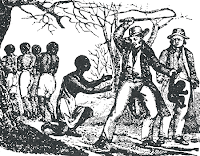
1663: A Virginia court decided a child born to a mother who was a slave is automatically a slave.
1710: Africans began to out-number Europeans in South Carolina.
1750: Georgia legalizes slavery (the final colony of British North American to do so).
1830: The total slave population in the U.S. was more than 2 million (U.S. Census). 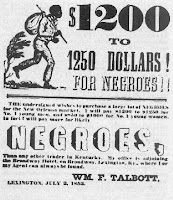
1863: President Lincoln issued the Emancipation Proclamation.
1865: The 13th Amendment abolishing slavery was signed into law.
1869: Plessy v. Ferguson the Courts decided living separate but equal was not in violation of the Constitution.
1870: The fifteenth Amendment allowing African Americans to vote was passed
1956: Voting Rights Act of 1965 was passed allowing the first African-Americans to register to vote.
1963: Martin Luther King Jr., gave the most famous "I Have A Dream" speech on the steps of the Lincoln Memorial during the civil rights movement. 
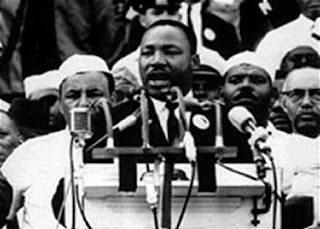
1972: The Equal Employment Opportunity Act was passed.
1982: Singer Michael Jackson's album Thriller becomes one of the best-selling albums of all time.
1983: Vanessa Williams becomes the first African American Miss America.
1989: Oprah Winfrey is the first African American woman to host a national talk show. Her estimated earnings are $150 million (Forbes Magazine).
1997: Tiger Woods becomes the first African American to win the Masters tournament.
2002: Halle Berry becomes the first African American woman to win an Oscar for Best Actress.
2008: Barack Obama is elected the first African American President in the United States of America.
Reference
Davis, R. (2009).Surviving Jim Crow: In-Depth Essay. New York Life. Retrieved June 10, 2010 from http://www.jimcrowhistory.org/history/surviving2.htm.
Johnson, A. (2008) Barack Obama elected 44th president ‘Change has come to America,’ first African-American leader tells country. MSNBC. Retrieved June 12, 2010 http://www.msnbc.msn.com/id/27531033/.
PBS Online, (2009). Africans in America, Judgment day. WGBH Educational Foundation. Retrieved June 11, 2010 from http://www.pbs.org/wgbh/aia/home.html.
Rico, B. (2001). American Mosaic – Multicultural Readings in Context (3rd ed.). New York: Houghton Mifflin Company.
Web Guides, (2009). Primary documents in American history, 13th Amendment to the U.S. Constitution. Retrieved June 11, 2010 from http://www.loc.gov/rr/program/bib/ourdocs/13thamendment.html.



No comments:
Post a Comment